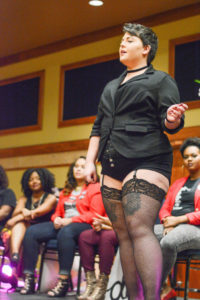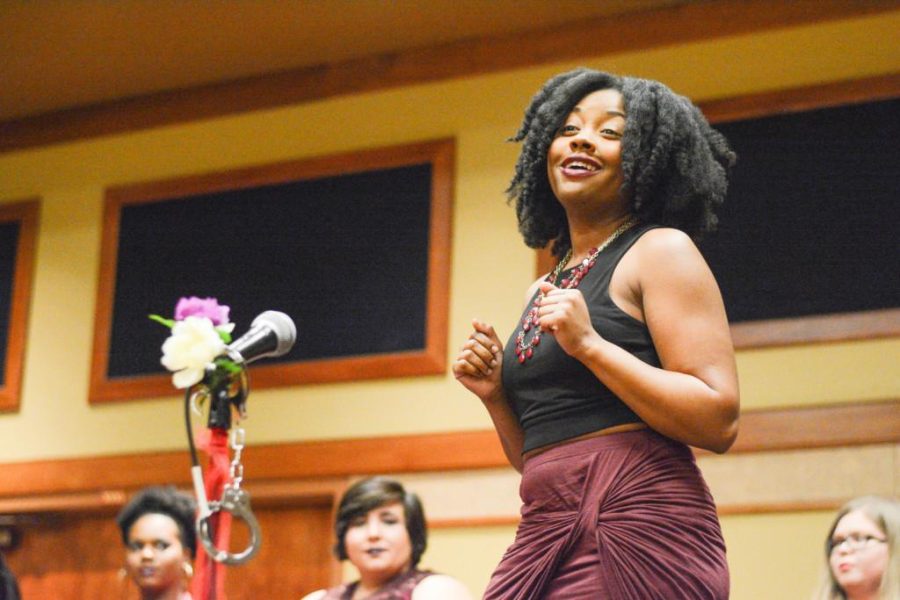Story by Matthew Parks, Staff writer
Female empowerment – only two months into 2017 – has been one of the most hot-button topics of the year.
The Women’s March that took place in Washington D.C. in January was one of the largest protests in history, with an estimated 5 million who marched nationwide and 500,000 in D.C. alone, with a mission of showing the world that women’s rights are human rights.
 In Murray, the local Women’s March drew massive crowds led by locals and students in the community – and now, with Murray State’s production of Eve Ensler’s “Vagina Monologues,” students and faculty have come together to produce a “story of violence, strength, loss, vulnerability and triumph.”
In Murray, the local Women’s March drew massive crowds led by locals and students in the community – and now, with Murray State’s production of Eve Ensler’s “Vagina Monologues,” students and faculty have come together to produce a “story of violence, strength, loss, vulnerability and triumph.”
The production took place Friday and Saturday in the Curris Center small ballroom, and was directed by Murray State graduate students Jasmine Wilkerson and Tyler Bradley.
All profits from the event went to support the Purchase Area Sexual Assault and Child Advocacy Center, a nonprofit that provides intervention services to the victims of sexual-based crimes.
Bradley said this year’s monologues are significant because of the current environment surrounding women’s equality.
“Because of events such as the Women’s March on Washington, discussion continues happening about female empowerment, what equality and equity is, and what that might look like in this American age,” Bradley said. “This event helps further those discussions, and helps us explore our own masculinities and femininities, and how our stories are one of the most powerful tools in education, advocacy and empowerment.”
While it may or may not have to do with events like the Women’s March, people showed up en masse for the show’s production – during the Friday showing, the ballroom was so packed more chairs had to be brought in for audience members.
The monologues themselves tackled a myriad of issues, from rape, to LGBTQ+ issues, to what it means to be a woman in modern society.
“The Vagina Monologues” have always been subject to critique because of the crass nature involved in much of the dialogue, but Ensler herself defended those criticisms, saying that the monologues are simply the real stories of real women – with no sugarcoating to be found.
Carly Dothsuk, senior from Mason, Michigan, said the production is important to her because of the message it sends to women everywhere.
“It’s difficult to be a woman in this day and age,” Dothsuk said. “You’re perpetually surrounded by people telling you what you should be and how you should think, while simultaneously trying to shame you for things you can’t control – i.e. having a vagina, your gender identity, whatever the case may be.”
Dothsuk said the current political environment in the United States also makes the monologues more important than ever.
“There’s a lot of vitriolic discourse out there right now,” Dothsuk said. “Anything that can make people feel empowered and safe and loved can only be a good thing.”



























































































